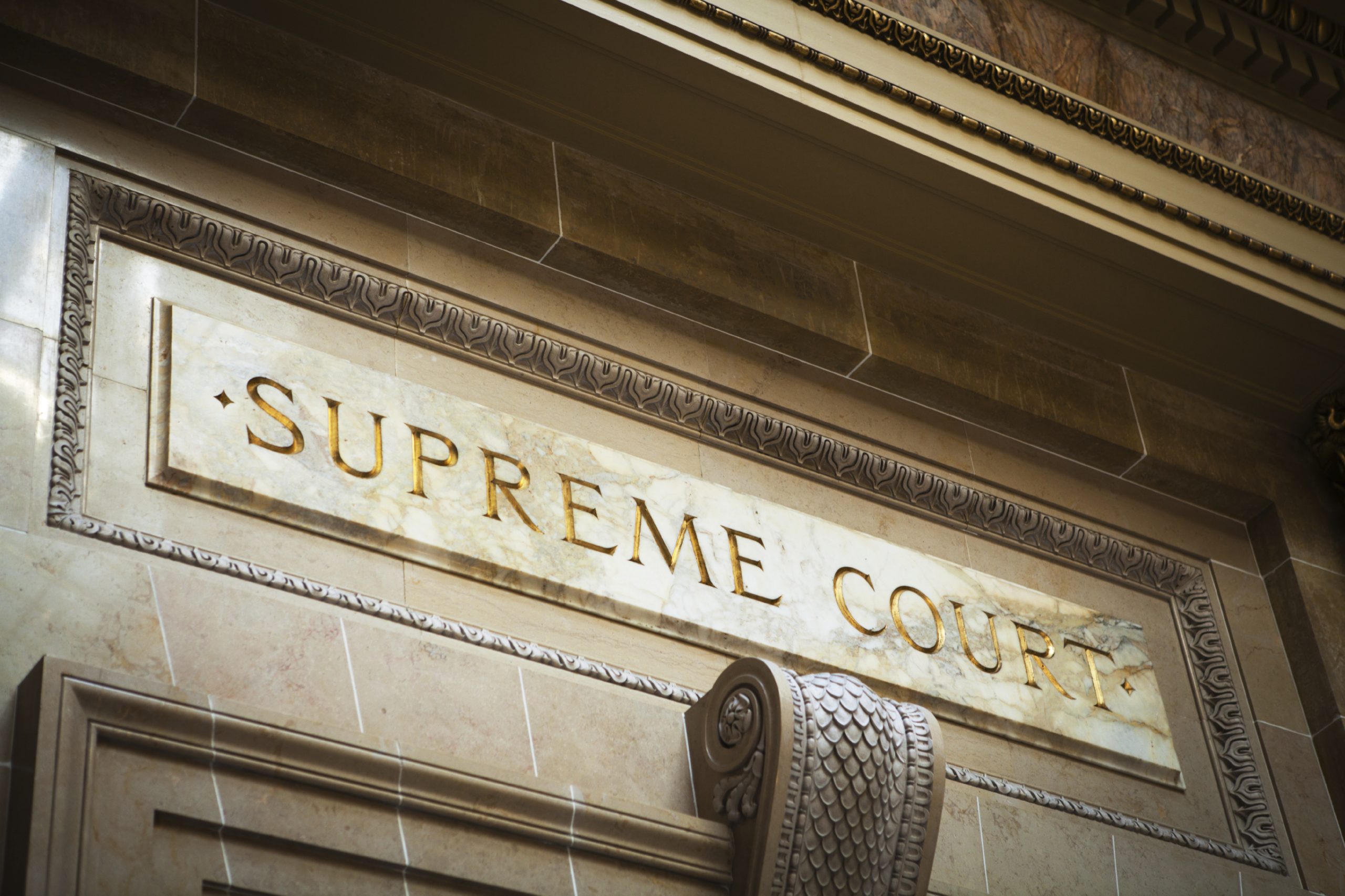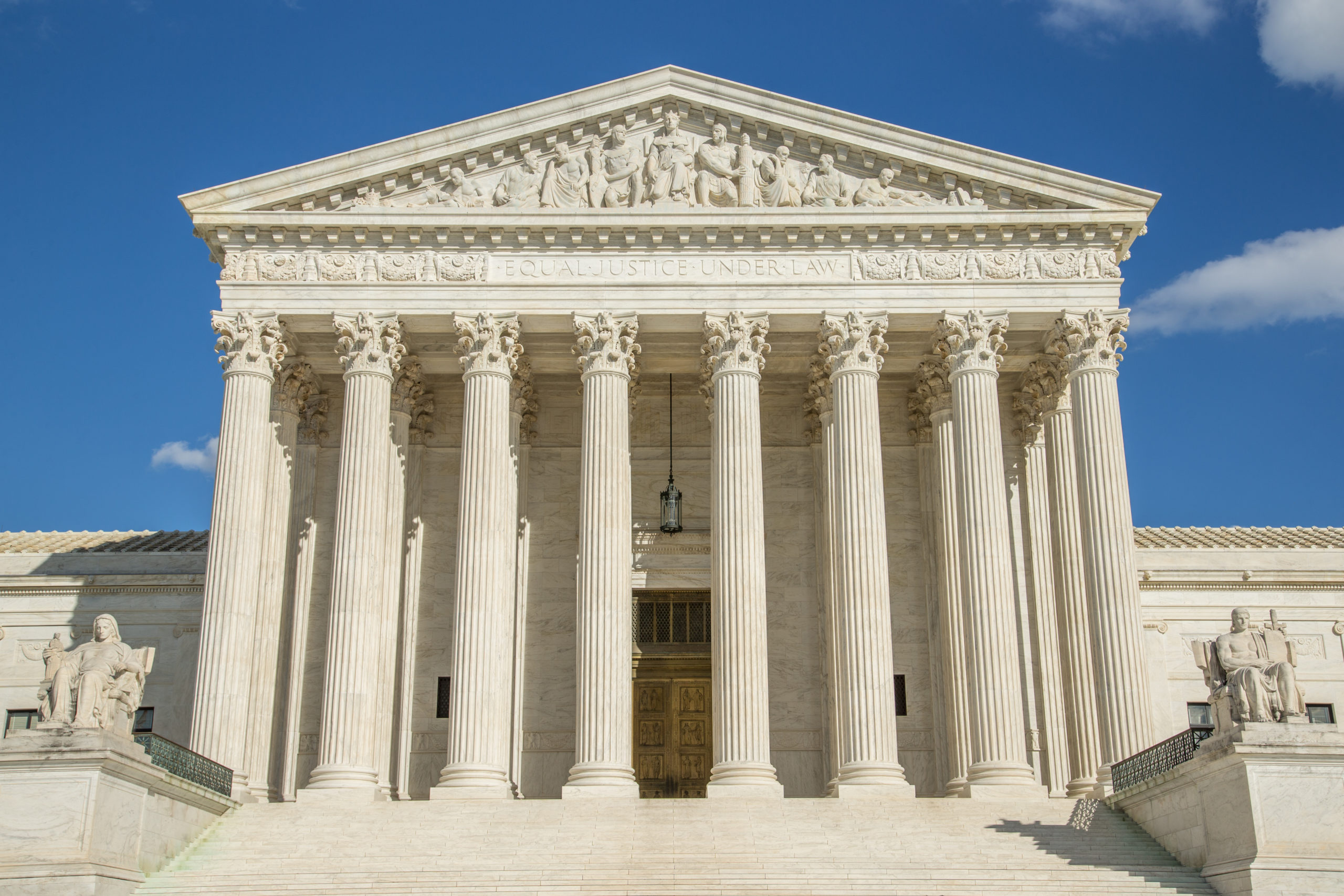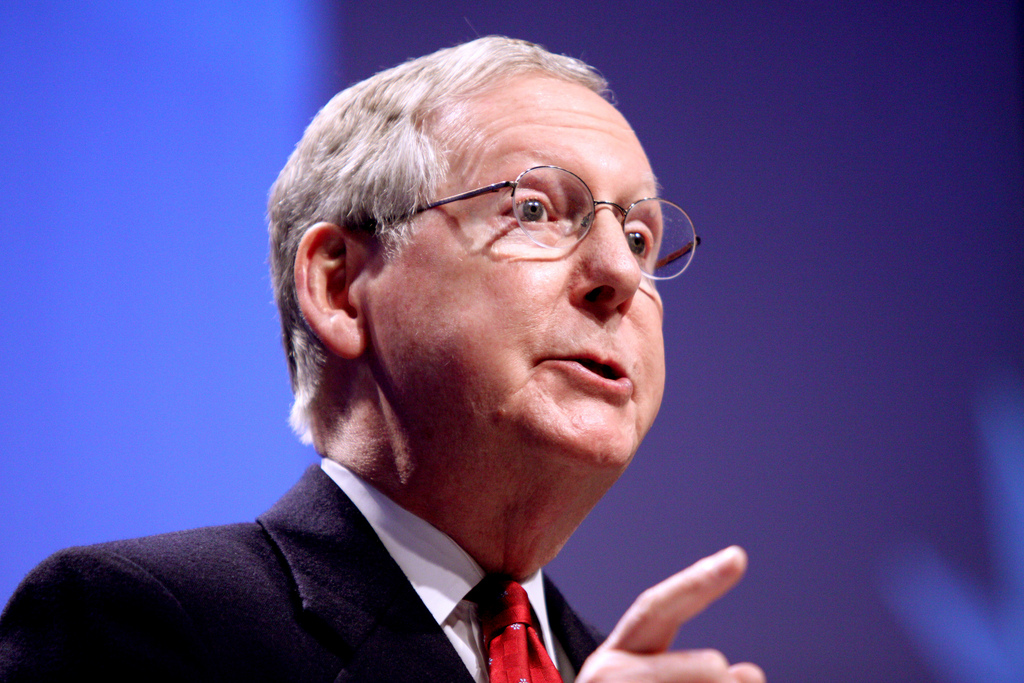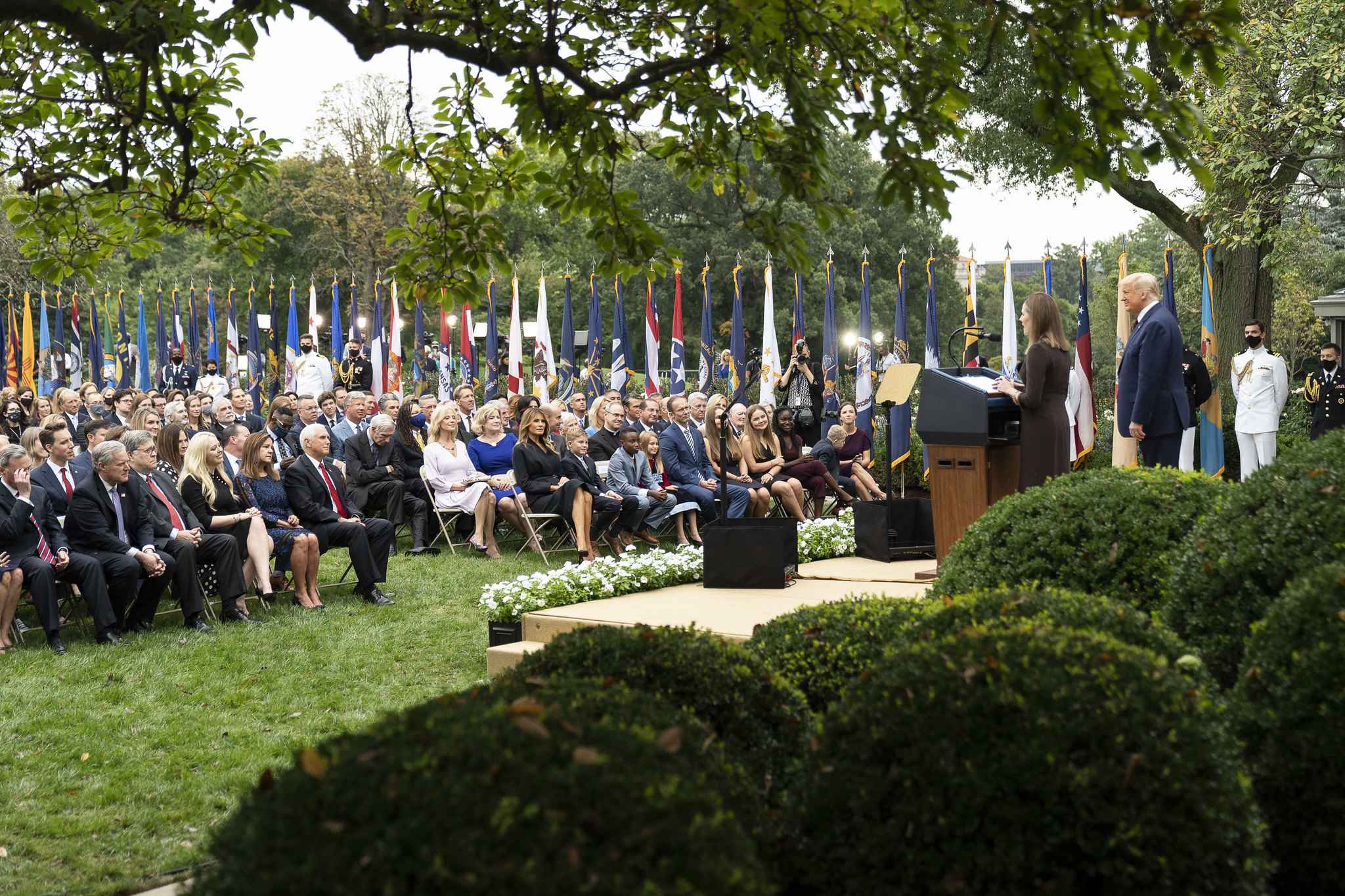Abortion rights, women of color, and LGBTQIA+ people are under attack. Pledge to join us in fighting for gender justice.
Supreme Court Review: 2016-2017 Term

The Supreme Court ended its 2016-2017 Term on Monday. The following are some of the Court’s decisions this Term that implicate women’s legal rights.
Sessions v. Morales-Santana
In Sessions v. Morales-Santana (formerly Lynch v. Morales-Santana), the Supreme Court again made clear that the Constitution provides robust protections against sex discrimination. Writing for a six-Justice majority, Justice Ginsburg held that it is unconstitutional sex discrimination for U.S. law to impose different U.S. residency requirements on unmarried citizen mothers and unmarried citizen fathers seeking to pass on U.S. citizenship to their foreign-born children. (Justices Thomas and Alito concurred in the decision in part; Justice Gorsuch did not participate in the decision.) The National Women’s Law Center joined a friend of the court brief in support of Morales-Santana last year.
The Supreme Court concluded that the law’s difference in treatment of mothers and fathers was based on gender stereotypes that no longer accurately reflect the world, if they ever did – namely, the stereotype that unmarried fathers will have no relationship with their children, while unmarried mothers will act as sole parent and guardian. Using the heightened scrutiny standard from previous decisions in cases that discriminated based on sex, the Supreme Court determined that the distinction was not constitutional, because it made “’overbroad generalizations about the different talents, capacities, or preferences of males and females.’” The decision in this case thus represents a victory for the principle of equal treatment of men and women under law.
Pavan v. Smith
The Supreme Court summarily reversed the decision of the Arkansas Supreme Court denying same-sex married couples’ right to be named on their children’s birth certificates. Deciding the case without oral argument, the Court stated: “The Arkansas Supreme Court’s decision, we conclude, denied married same-sex couples access to the ‘constellation of benefits that the Stat[e] ha[s] linked to marriage.'”
This decision reaffirms the Court’s earlier decision in Obergefell v. Hodges, providing that state laws that deny same-sex couples the right to marry or provide that only a marriage between a man and a woman will be recognized under state law violate the Constitution.
Bank of America v. Miami and Wells Fargo & Co. v. Miami
In these two consolidated cases, by a 5-3 vote (Justice Gorsuch did not participate in the decision), the Court held [ that city governments may sue mortgage lenders and housing operators to enforce the antidiscrimination protections of the Fair Housing Act.
The city of Miami alleged that the banks targeted African American and Latino customers for predatory mortgages. The city asserted that these riskier loans created a foreseeable result: foreclosures and lowered property values, which in turn resulted in lost tax revenues, increased need for public services, and other economic damages for the city. Justice Breyer’s majority opinion recognized that these economic impacts satisfied the requirements for establishing injury under the statute, although lower courts will have to determine under what circumstances city governments will be able to recover damages.
Although the specific allegations in this case involved race discrimination, the Fair Housing Act also prohibits discrimination by mortgage lenders on the basis of sex (as well as on the basis of color, religion, national origin, familial status, or disability). Accordingly, this decision protects the ability of municipalities (or other government entities) to enforce the FHA’s protections for women.
Trinity Lutheran Church of Columbia v. Pauley
In this case, the Court held that Missouri’s Scrap Tire Program, which competitively awards grants to non-profit organizations for the purchase of recycled tires to resurface playgrounds, unconstitutionally discriminated against a church when it refused a church’s application for the award. A majority of the Justices emphasized that the holding in this case was narrow, applying to funding for the resurfacing of playgrounds, rather than all forms of public funding to religious institutions. But Justices Gorsuch and Thomas separately concurred, and Justice Gorsuch went as far as to say that he would expand the case’s reach beyond this particular circumstance, allowing government funding of churches, which would be a radical departure from prior precedent. Justices Sotomayor and Ginsburg dissented. In her dissent, Justice Sotomayor was harshly critical of the Court’s decision, arguing it could be read to require governments to fund religious entities in some instances.
The Court’s ruling – especially Justice Gorsuch’s concurrence – sends a troubling signal about how the Court might reshape Free Exercise jurisprudence, and increases the importance of ensuring that religious entities that receive such funding are held to the same standards as other recipients of government funding, including nondiscrimination standards.
National Labor Relations Board v. SW General
This Term, in National Labor Relations Board v. SW General, the Court held that, under statute, officials named to positions that require Senate confirmation may not serve in an acting capacity in those position. Four Justices joined Chief Justice Roberts’ majority opinion, Justice Thomas concurred, and Justices Sotomayor and Ginsburg dissented (Justice Gorsuch did not participate in the case).
The Court did not resolve the question of whether NLRB decisions taken while the official in question was improperly serving as NLRB General Counsel were voidable, or actually void. However, the Supreme Court’s decision only affects cases in which the employer raised the issue before the NLRB, so there are a limited number of cases at issue.
G.G. v. Gloucester County School Board
Gavin Grimm, a 17-year-old transgender student, was forbidden to use the boys’ bathrooms at Gloucester High School in Gloucester, Virginia and instead forced to use a separate bathroom in a converted utility closet. He sued the school board to challenge its discriminatory policy under the 14th Amendment and Title IX. The U.S. Court of Appeals for the Fourth Circuit struck down the policy, and the school board petitioned the Supreme Court for review. NWLC submitted an amicus brief to the Supreme Court.
In March, the Supreme Court announced that the case would be remanded back to the Fourth Circuit for reconsideration, after the Departments of Justice and Education rescinded the Title IX guidance on protections for transgender students on which the Fourth Circuit had relied.
Looking Ahead
The Court has already announced that it will be hearing a number of important cases in the upcoming Term, including challenges to the Administration’s travel ban. The Court agreed to hear Masterpiece Cakeshop, Ltd. v. Colorado Civil Rights Commission, which raises the question of whether applying state antidiscrimination laws to a baker who refused to bake a wedding cake for a same-sex couple on religious grounds violates the baker’s constitutional rights to free speech or free exercise of religion; the question of whether individuals and businesses can assert a religious right to discrimination without legal consequence is one of deep importance to women. The Court also agreed to hear a number of consolidated cases (including Epic Systems, Inc. v. Lewis) involving whether the National Labor Relations Act prohibits agreements requiring an employee to arbitrate claims against an employer on an individual basis, and waive the right to participate in class actions or collective actions, which makes it more difficult for employees to challenge unlawful employment practices, including discrimination and harassment.
The newest Justice, Neil Gorsuch, was confirmed by the Senate on April 7, 2017, in time for the last set of arguments of the Term. Next Term will be the first full Term in which Justice Gorsuch will be serving on the Court. During his confirmation hearings, the Center highlighted concerns about Justice Gorsuch’s legal record on issues of importance to women. As with every Justice, Justice Gorsuch’s decisions will impact women and girls for generations to come. Women will be watching his votes and opinions next Term, and in the future.




